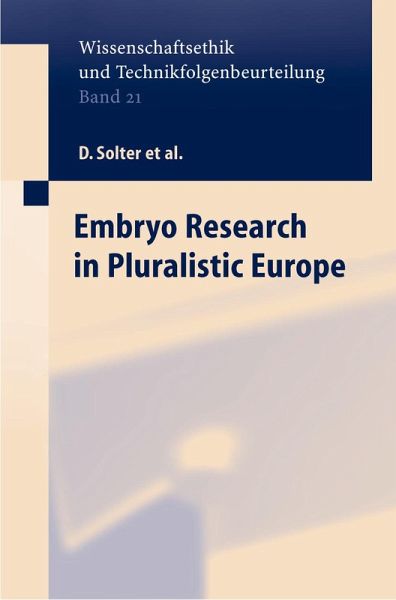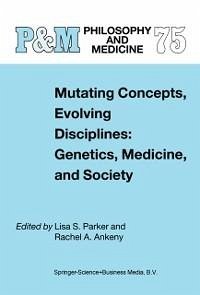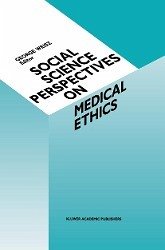
Embryo Research in Pluralistic Europe (eBook, PDF)
Versandkostenfrei!
Sofort per Download lieferbar
40,95 €
inkl. MwSt.
Weitere Ausgaben:

PAYBACK Punkte
20 °P sammeln!
Recent advances in techniques and understanding in the fields of genetics, embryology and reproductive biology have opened up new ways to treat a wide range of medical problems. They range from new options for infertility treatment and pre-implantation genetic diagnosis to stem-cell-based therapies for debilitating diseases. Since all these approaches involve the manipulation of human gametes, embryos or embryonic cells, and could also permit more contentious uses, they have stimulated a controversial debate as to what aims are desirable and to what extent experiments on human embryos are mora...
Recent advances in techniques and understanding in the fields of genetics, embryology and reproductive biology have opened up new ways to treat a wide range of medical problems. They range from new options for infertility treatment and pre-implantation genetic diagnosis to stem-cell-based therapies for debilitating diseases. Since all these approaches involve the manipulation of human gametes, embryos or embryonic cells, and could also permit more contentious uses, they have stimulated a controversial debate as to what aims are desirable and to what extent experiments on human embryos are morally permissible, if permissible at all. The situation is further complicated by the fact that scientific projects are increasingly realized through international co-operation and that patients are increasingly ready to seek morally contentious medical treatment wherever it is available and thus to bypass national legislation. In view of this situation the Europäische Akademie assembled a temporary interdisciplinary project group in which scientists from universities and non-university research organizations in Europe working on the relevant subjects were brought together and charged with establishing a knowledge base and providing suggestions for long-term solutions that would be acceptable for society. Presented here are the results of this project, ranging from a discussion of the theoretical and practical possibilities in human-embryo experimentation and its alternatives in research on adult stem cells, a comparison of the situations and prospects of regulation of embryo research in Europe, a survey of European public attitudes, and a philosophical analysis of the arguments and argumentative strategies used in the debate.
Dieser Download kann aus rechtlichen Gründen nur mit Rechnungsadresse in A, B, BG, CY, CZ, D, DK, EW, E, FIN, F, GR, HR, H, IRL, I, LT, L, LR, M, NL, PL, P, R, S, SLO, SK ausgeliefert werden.












